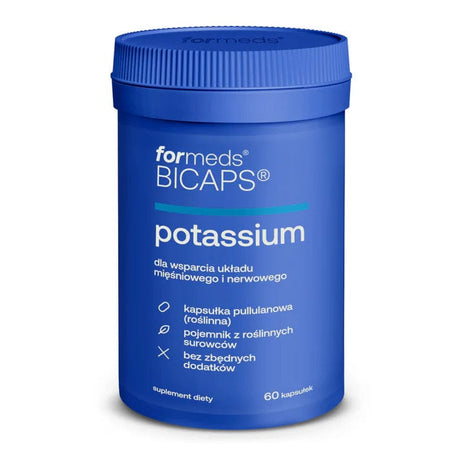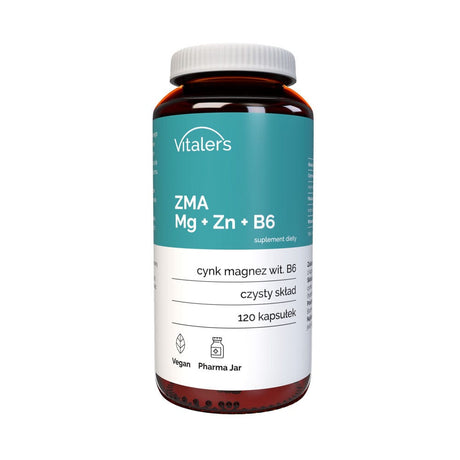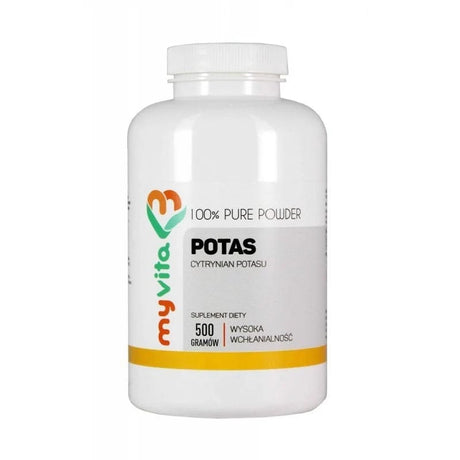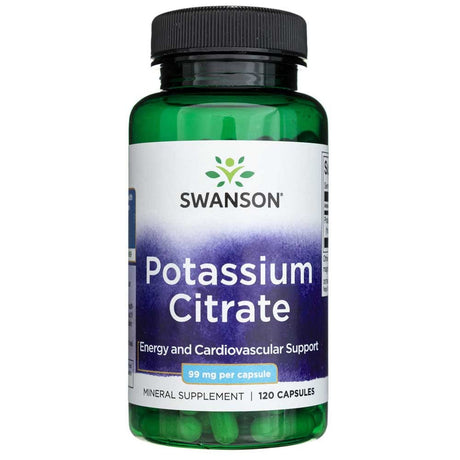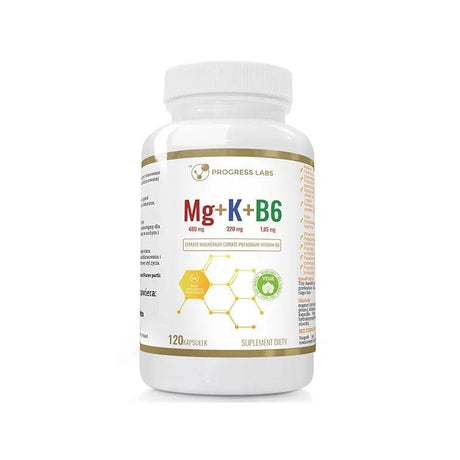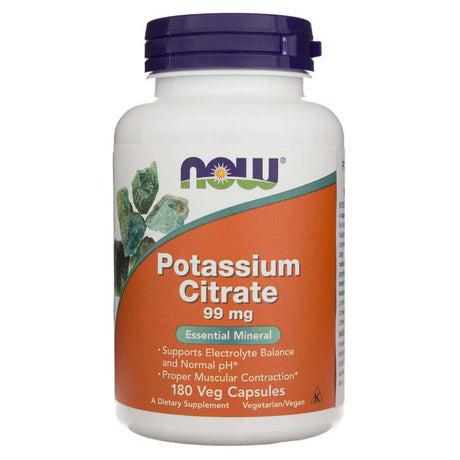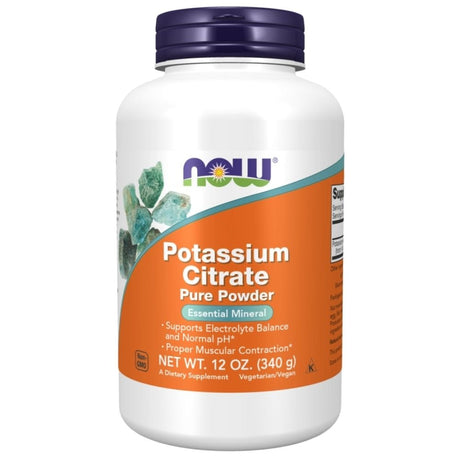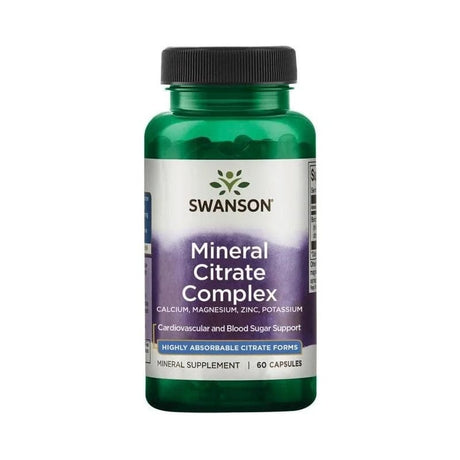Vitaler's
Vitaler's ZMA Mg 240 mg Zn 15 mg B6 10 mg - 120 Kapseln
Normaler Preis €7.39Grundpreis€0.06 pro StückOstrovit
Ostrovit Kalium - 90 Tabletten
Verkaufspreis €3.68 Normaler Preis €4.09Grundpreis€0.04 pro StückOstrovit
Ostrovit Elektrolyte, Orange - 20 Tabletten
Verkaufspreis €1.79 Normaler Preis €1.99Grundpreis€0.09 pro StückVitaler's
Vitaler's Magnesium 100 mg + Kalium 150 mg + Vitamin B6 10 mg - 120 Kapseln
Normaler Preis €10.99Grundpreis€0.09 pro StückVitaler's
Vitaler's Kaliumzitrat 380 mg - 120 Kapseln
Normaler Preis €8.49Grundpreis€0.07 pro StückOstrovit
Ostrovit Kaliumcitrat, Zitrone-Limettette - 200 g
Normaler Preis €6.59Grundpreis€3.30 /100gProgress Labs
Progress Labs Magnesium + Kalium + Vitamin B6 - 120 Kapseln
Normaler Preis €6.99Grundpreis€0.06 pro StückNow Foods
Now Foods Kaliumzitrat 99 mg - 180 pflanzliche Kapseln
Normaler Preis €9.99Grundpreis€0.06 pro StückOstrovit
Ostrovit Magnesium-Kalium, Grapefruit - 20 Tabletten
Normaler Preis €2.69Grundpreis€0.13 pro StückPharmovit
Pharmovit Kalium + Magnesium + B6 - 120 Kapseln
Verkaufspreis €11.24 Normaler Preis €12.49Grundpreis€0.09 pro StückVitaler's
Vitaler's Magnesium 100 mg + Kalium 150 mg + Vitamin B6 10 mg - 60 Kapseln
Normaler Preis €6.99Grundpreis€0.12 pro StückSalvum
Protego Elektrolyte + Probiotika - 20 Brausetabletten
Normaler Preis €3.59Grundpreis€0.18 pro StückBiowen
Biowen Potassium Forte, Kaliumcitrat 1100 mg - 100 Kapseln
Normaler Preis €10.39Grundpreis€0.10 pro StückPowerBar
PowerBar Electrolytes ohne Zucker, Mango-Maracuja - 10 Brausetabletten
Normaler Preis €4.99Grundpreis€0.50 pro Stück
Kalium: Das essentielle Mineral für eine optimale Körperfunktion
Kalium ist ein wichtiger Mineralstoff, der für das optimale Funktionieren aller biologischen Einheiten im menschlichen Körper unerlässlich ist. Seine Hauptaufgabe ist die Aufrechterhaltung eines stabilen Elektrolytgleichgewichts und die Regulierung des Gleichgewichts von sauren und basischen Substanzen. Dieser Mineralstoff hat großen Einfluss auf verschiedene physiologische Systeme und Organe. Sowohl ein Mangel als auch ein Überschuss an Kalium kann jedoch zu gesundheitlichen Beeinträchtigungen führen., Daher ist es für das allgemeine Wohlbefinden unerlässlich, einen angemessenen Kaliumspiegel aufrechtzuerhalten.
Die Rolle von Kalium im Körper verstehen
Kalium ist ein Spurenelement, das vorwiegend in den Zellen vorkommt., Es macht bis zu 98% des gesamten Mineralstoffs im Körper aus. Es ist vor allem in den Muskeln, und zu 20% in den roten Blutkörperchen, den Knochen, und der Leber verteilt. Als Elektrolyt, weist Kalium eine hohe Reaktivität auf, wenn es sich mit Wasser verbindet, und positiv geladene Ionen produziert, die Impulse durch den Körper leiten. Diese Eigenschaft ist für viele grundlegende physiologische Prozesse entscheidend.
Zu den wichtigsten Funktionen von Kalium gehören:
- Regulierung des Wasserhaushalts innerhalb der Zellen
- Ausgleich der Wirkung von Natrium außerhalb der Zellen
- Aufrechterhaltung des Flüssigkeitshaushalts für die allgemeine Gesundheit
Die vielseitigen Auswirkungen von Kalium auf die Körperfunktionen
Der Einfluss von Kalium erstreckt sich auf verschiedene Aspekte der menschlichen Physiologie. Experten betonen seine Bedeutung für:
- Unterstützung von Aktionspotenzialen in Nerven- und Muskelgewebe
- Regulierung der Hormonsekretion und -kontrolle
- Aufrechterhaltung des pH-Gleichgewichts
- Kontrolle des systemischen Blutdrucks
- Unterstützung des Gefäßtonus
- Regulierung des Glukose- und Insulinstoffwechsels
- Steuerung der gastrointestinalen Motilität
Die Forschung hat gezeigt, dass eine erhöhte tägliche Kaliumzufuhr mit einem geringeren Schlaganfallrisiko verbunden ist und zur Vorbeugung von Nierensteine . Eine kaliumreiche Ernährung ist besonders für ältere Erwachsene, vorteilhaft, da sie hilft, eine ausreichende Muskelmasse zu erhalten.
Kaliumquellen in der Ernährung
Eine ausreichende Kaliumzufuhr über die Ernährung ist entscheidend. Zu den reichhaltigen Kaliumquellen gehören:
- Obst: Orangen, Grapefruits, Bananen, Kiwis
- Gemüse: Kartoffeln, Spinat, Petersilie, Brokkoli, Gurken, Zucchini, Möhren
- Fisch: Thunfisch, Heilbutt, Kabeljau, Forelle
- Nüsse: insbesondere Mandeln und Pistazien
- Fleisch: einschließlich Rind- und Schweinefleisch
- Vollkornprodukte
Es ist wichtig zu beachten, dass frisches Obst und Gemüse die beste Quelle für Kalium, ist, da eine Wärmebehandlung zu einem Verlust von bis zu 60% des ursprünglichen Kaliumgehalts führen kann.
Aufrechterhaltung eines angemessenen Kaliumspiegels
Experten betonen, dass die Aufrechterhaltung eines angemessenen Kaliumspiegels entscheidend für die Homöostase des Körpers ist. Sowohl ein Mangel als auch ein Überschuss können nachteilige Auswirkungen, haben, die möglicherweise einen medizinischen Eingriff erfordern. Um Gesundheitsrisiken vorzubeugen, ist es wichtig, die Anzeichen und Symptome eines Ungleichgewichts zu kennen.
Hyperkaliämie: Die Risiken eines Kaliumüberschusses
Eine Hyperkaliämie tritt auf, wenn der Körper eine übermäßige Menge an Kalium enthält. Sie ist zwar selten, kann aber Personen mit schlechter Nierenfunktion oder Erkrankungen des Urogenitaltrakts betreffen. Zu den Symptomen gehören eine abnorme Herzfunktion oder Übelkeit, aber bei manchen Menschen treten keine erkennbaren Anzeichen auf. Bei Verdacht auf Hyperkaliämie, müssen Kaliumpräparate sofort abgesetzt und ein Arzt konsultiert werden.
Hypokaliämie: Erkennen von Kaliummangel
Kaliummangel, oder Hypokaliämie, tritt typischerweise auf, wenn der Körper plötzlich eine erhebliche Menge des Mineralstoffs verliert. Häufige Ursachen sind Erbrechen, Durchfall, oder intensive körperliche Betätigung, die zu einem erheblichen Wasserverlust führt. Während eine leichte Hypokaliämie leichte Symptome hervorrufen kann, können, schwere Fälle zu ernsthaften Gesundheitsproblemen führen.
Zu den Symptomen von Kaliummangel gehören:
- Muskelschwäche und/oder Krämpfe
- Vorübergehender Darmverschluss
- Müdigkeit und Apathie
- Verminderte Reflexe
In schweren Fällen, können die Symptome eskalieren zu:
- Atembeschwerden
- Veränderungen des Herzrhythmus
- Muskellähmung
Schlussfolgerung: Die Bedeutung von Kalium erkennen
Die Aufrechterhaltung eines angemessenen Kaliumspiegels ist entscheidend für die allgemeine Gesundheit und das Wohlbefinden. Wenn Sie seine Rolle im Körper verstehen, reichhaltige Nahrungsquellen erkennen, und sich der Anzeichen eines Ungleichgewichts bewusst sind, können Sie proaktive Schritte unternehmen, um einen optimalen Kaliumspiegel sicherzustellen. Denken Sie daran, dass Kaliummangel zwar lebensbedrohlich sein kann, dass er aber relativ leicht durch eine ausgewogene Ernährung und, bei Bedarf durch geeignete Nahrungsergänzungsmittel zu vermeiden ist.
Wenn Sie sich Sorgen um Ihren Kaliumspiegel machen oder eine Nahrungsergänzung in Erwägung ziehen, wenden Sie sich an einen Arzt, um die beste Vorgehensweise für Ihre individuellen Bedürfnisse zu ermitteln. Entdecken Sie unser Angebot an hochwertigen Kaliumpräparaten bei Medpak, um Ihre allgemeine Gesundheit und Ihr Wohlbefinden zu unterstützen.
